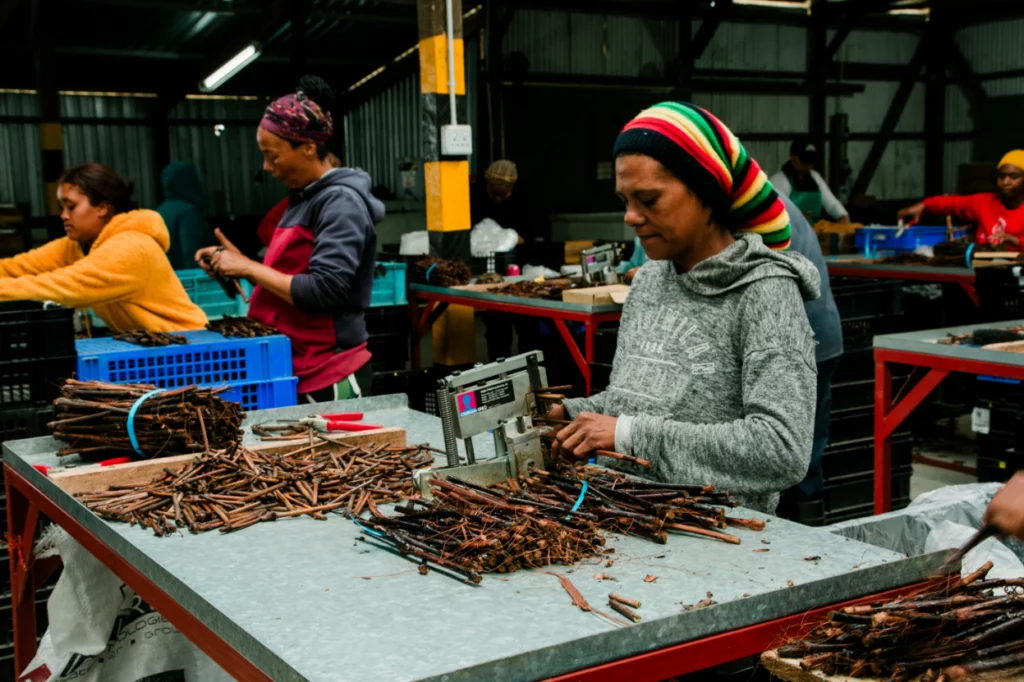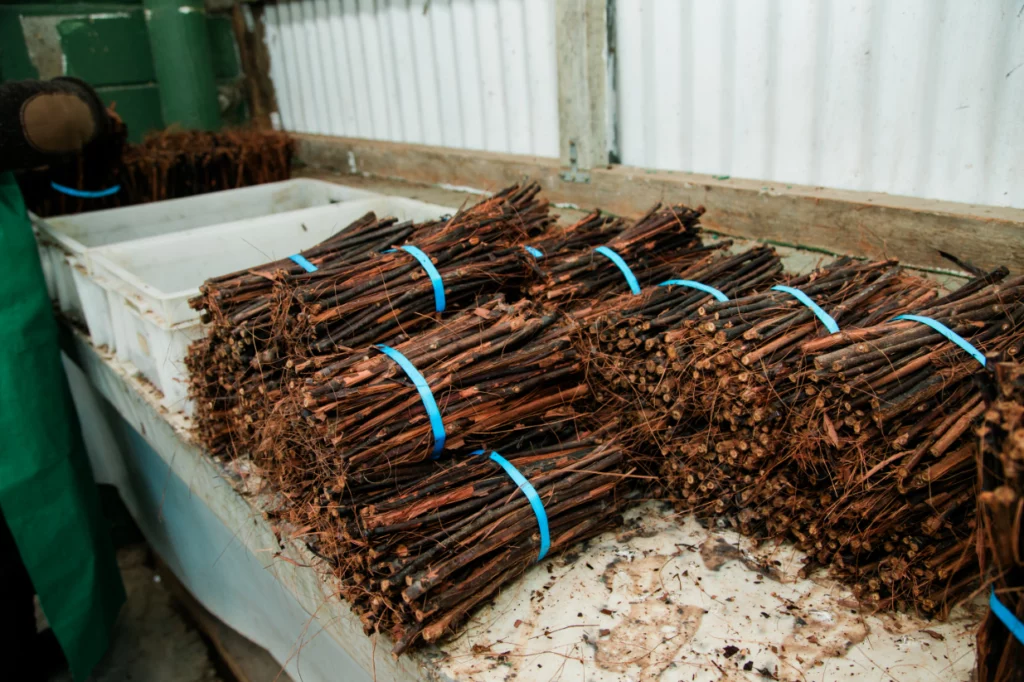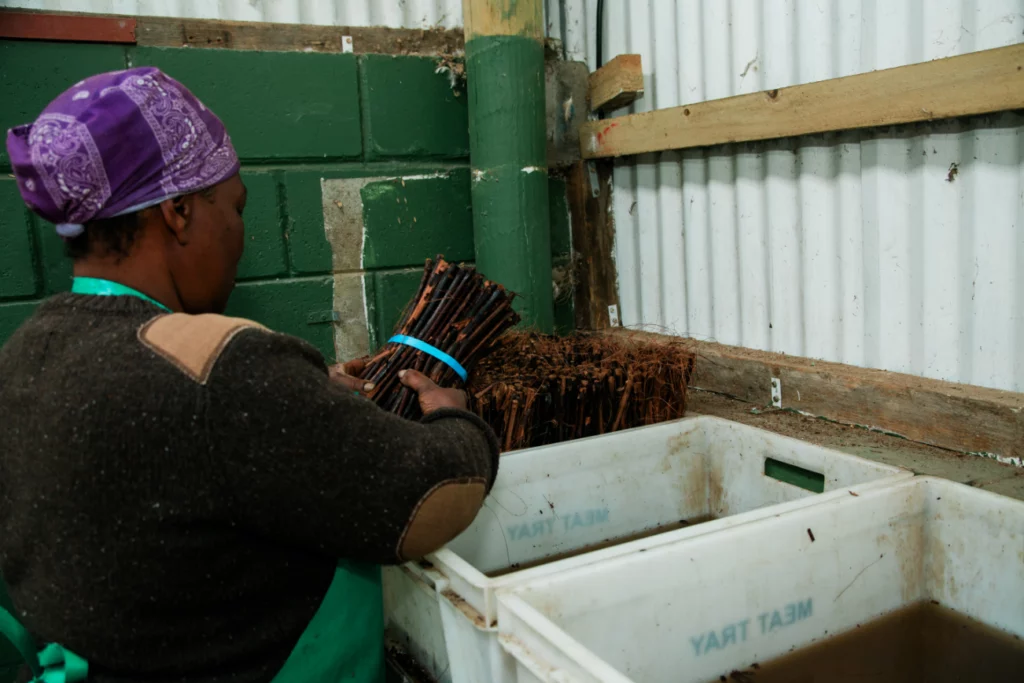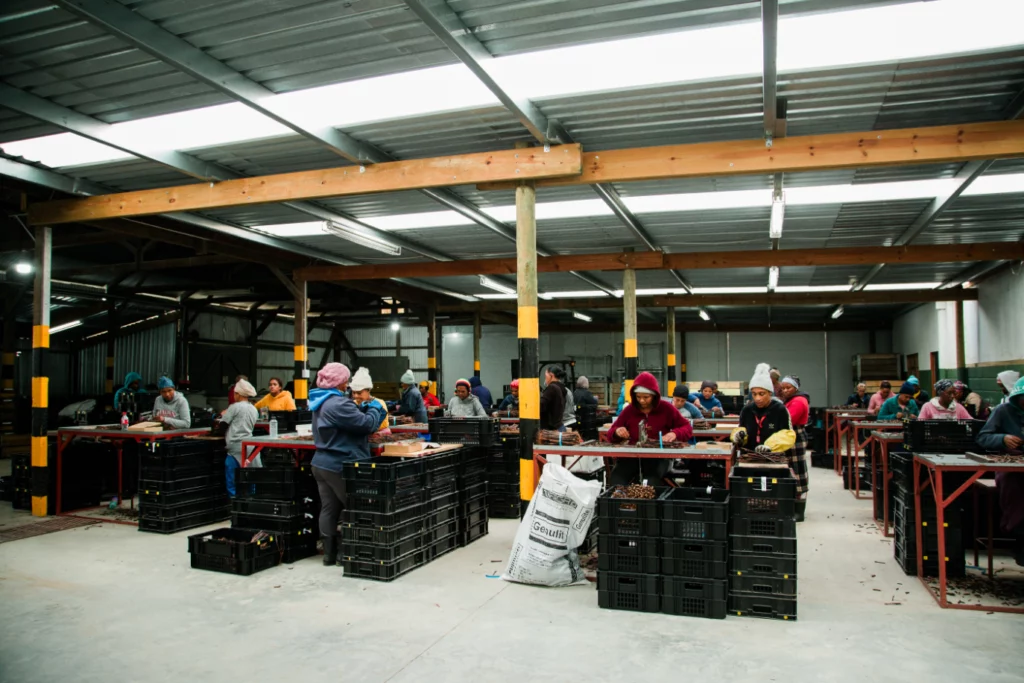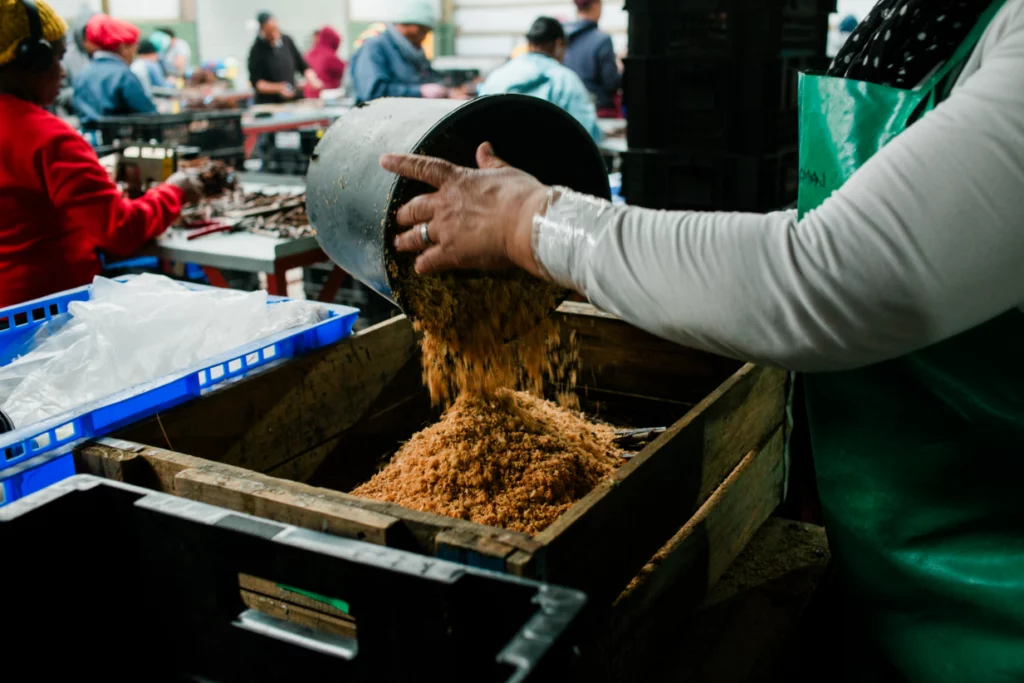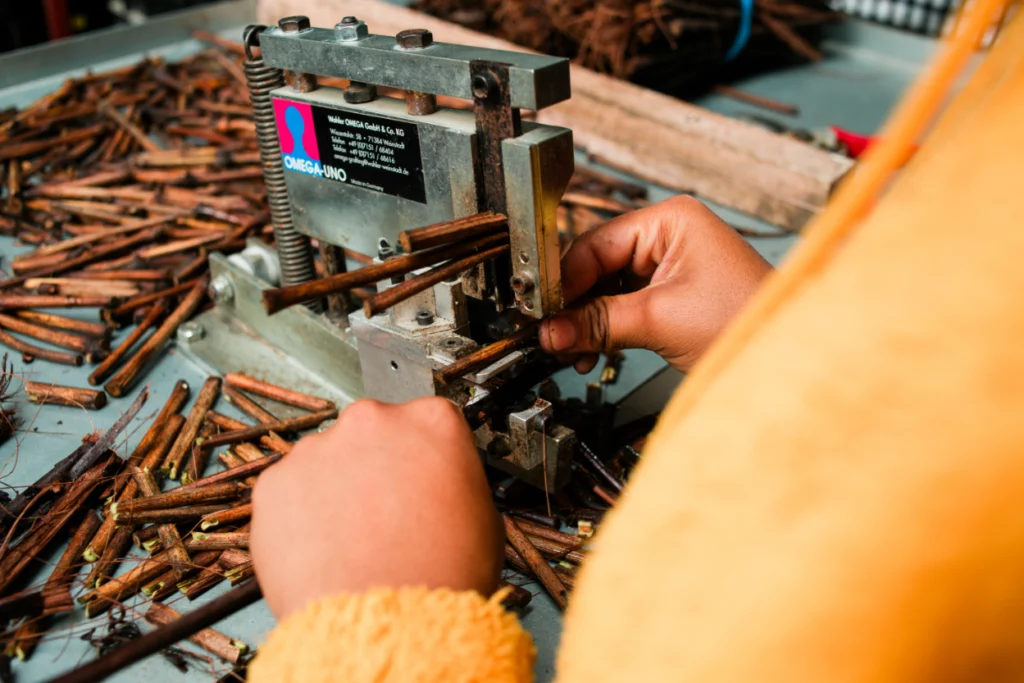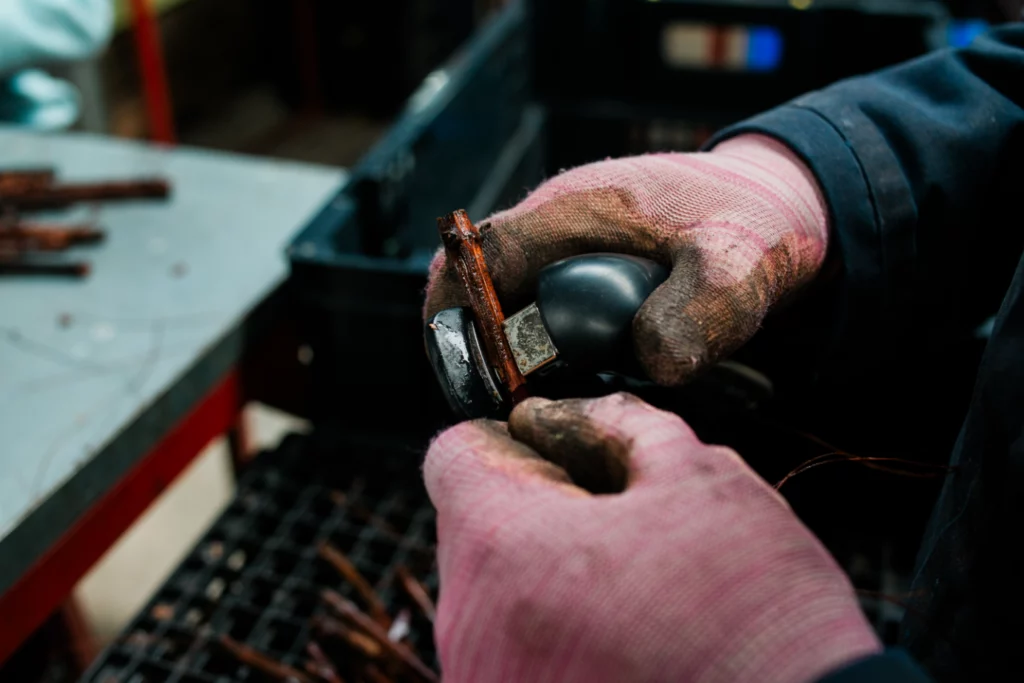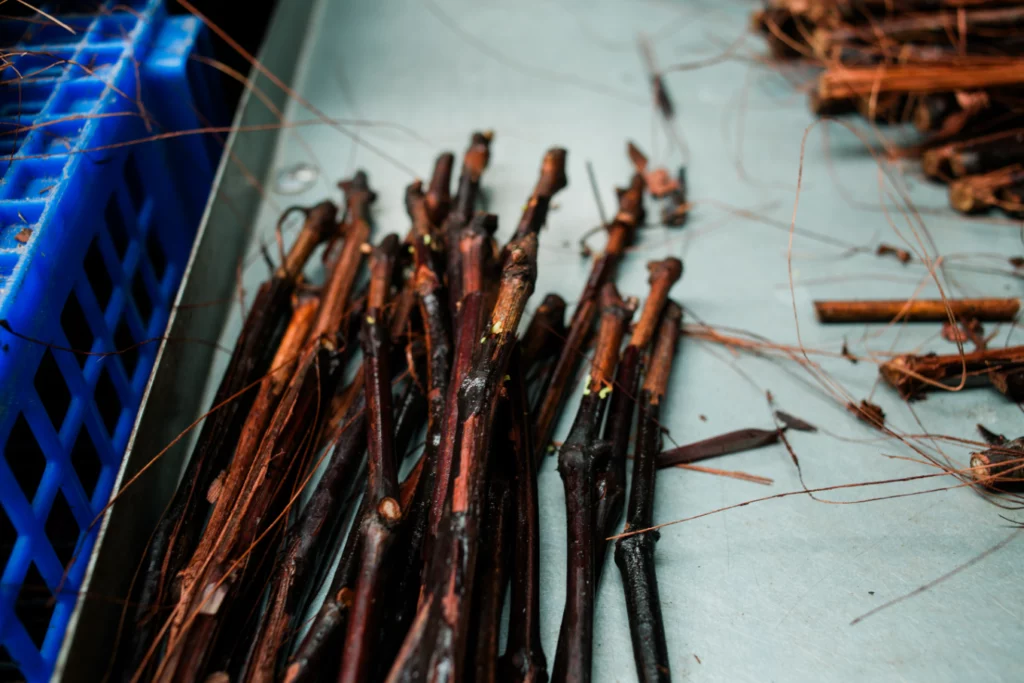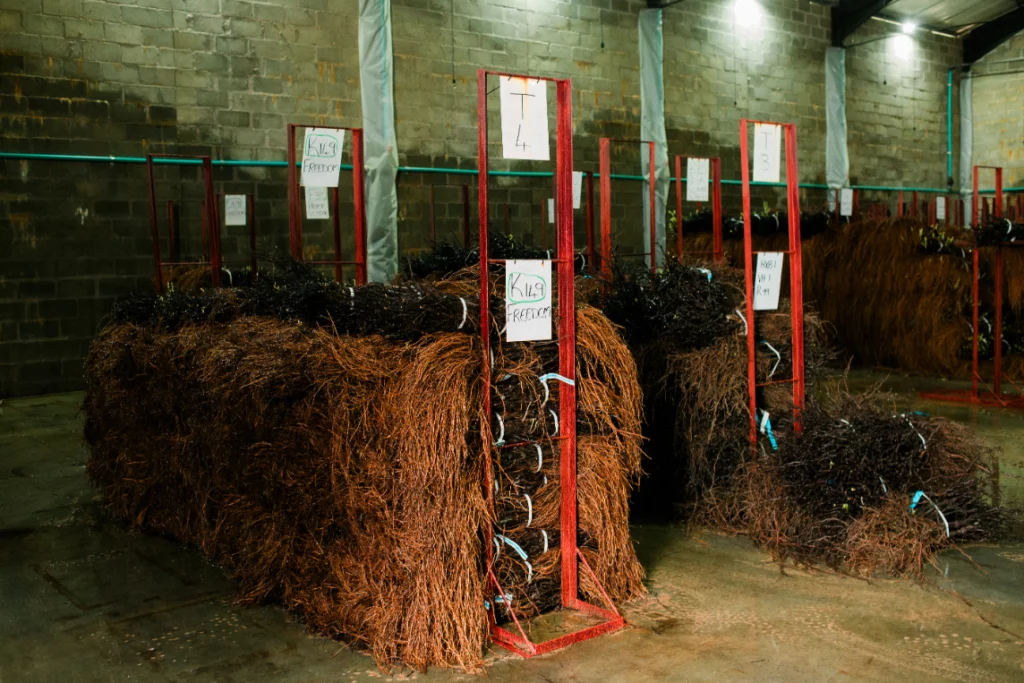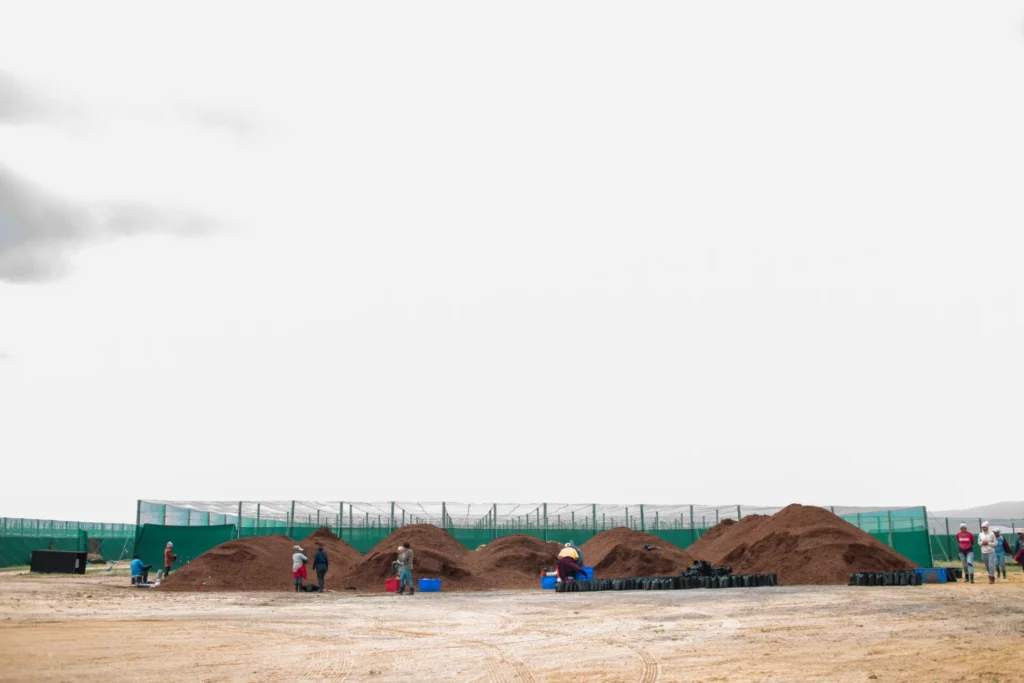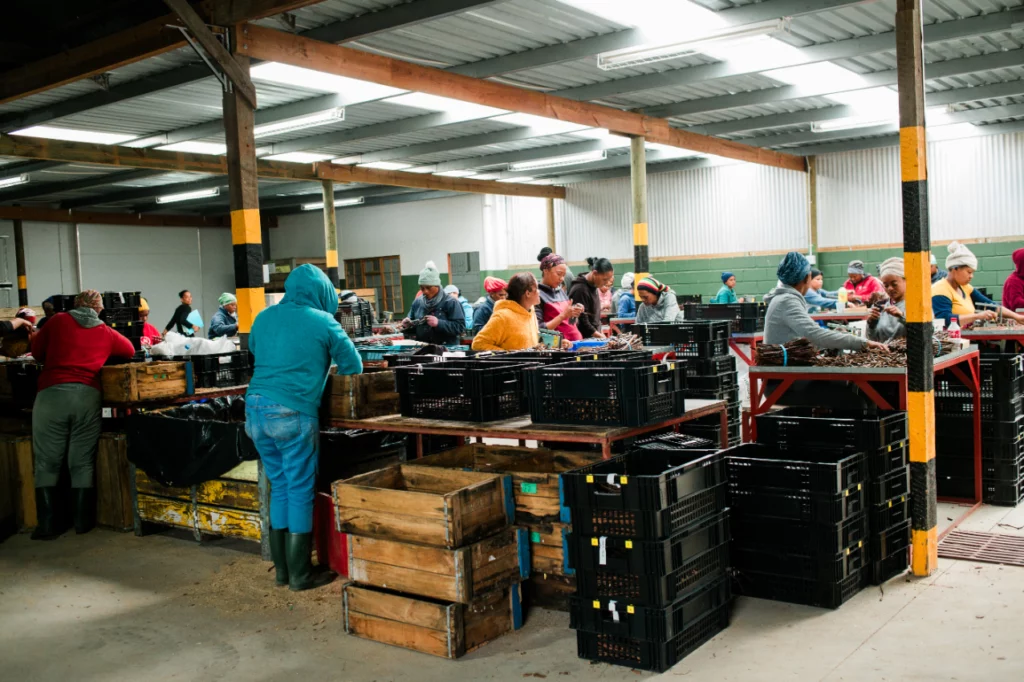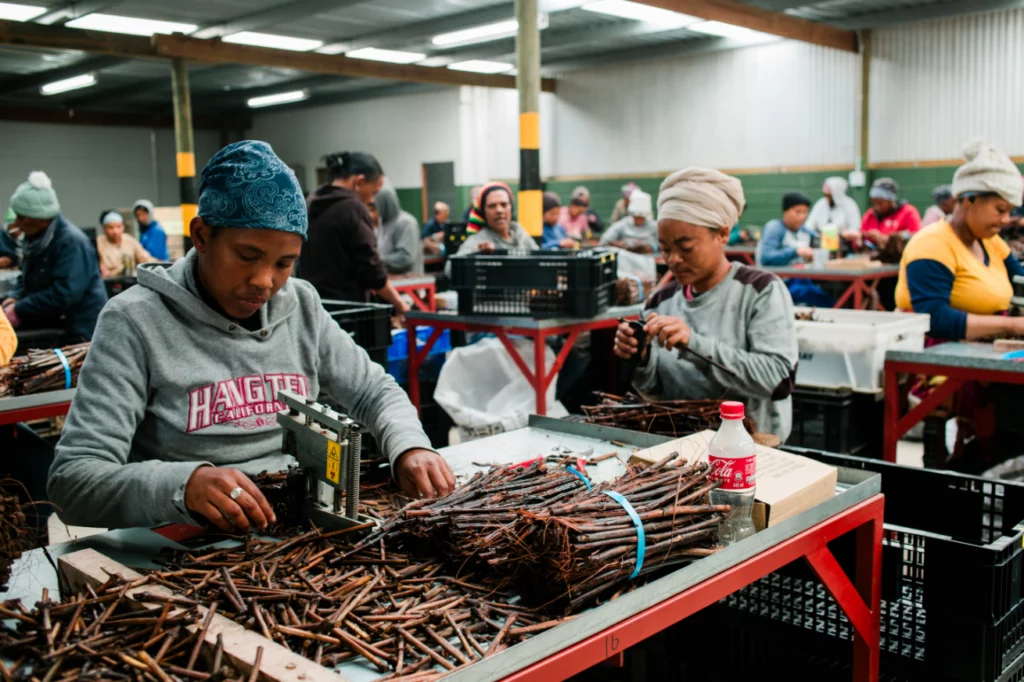African Nurseries’s commitment to high-quality plant material is reflected in our plantation of foundation rootstock material, planted in an isolated area near Moorreesburg, Western Cape, South Africa. It was planted on fertile, virgin soil to ensure adequate volumes of high-quality material. Currently, we have 13 Ha in production. We also sell rooted rootstock plants for export or local clients where “in-sito” grafting is required.
Rootstock
African Nurseries is committed to delivering the highest-quality plant material by establishing mother units in isolated, low-risk areas. Leveraging decades of expertise, we ensure that our practices are aligned with the latest developments in viticulture to meet the needs of growers in the wine, table, and raisin grape industries.
Rootstock Expertise and Selection
We recognize that rootstock selection is one of the most crucial aspects of vineyard success. Rootstocks influence nutrient uptake, environmental resilience, and the quality of scion varieties. Selecting the right rootstock involves careful consideration of soil pests, texture, depth, fertility, pH, salinity, lime content, water availability, drainage and irrigation practices.
At African Nurseries, we work closely with consultants, nurserymen and producers to ensure our rootstock offerings meet the evolving needs of the market. Our team of specialists provides personalized guidance to help grape growers make informed decisions tailored to their unique vineyard conditions.
Customers choose the best suitable rootstocks for their soil types and growing needs.
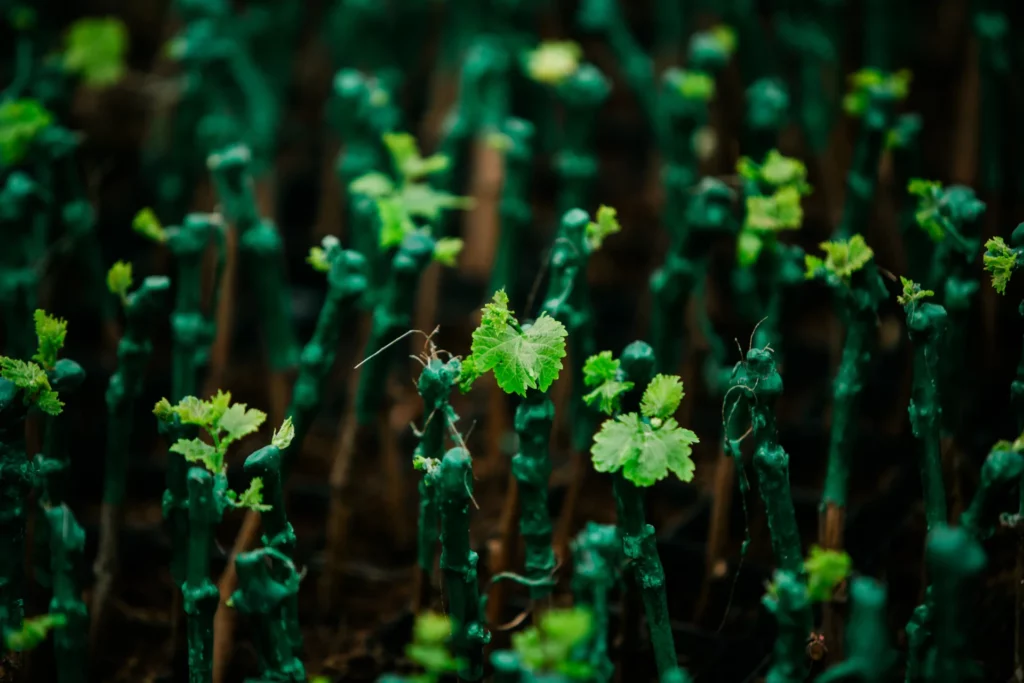
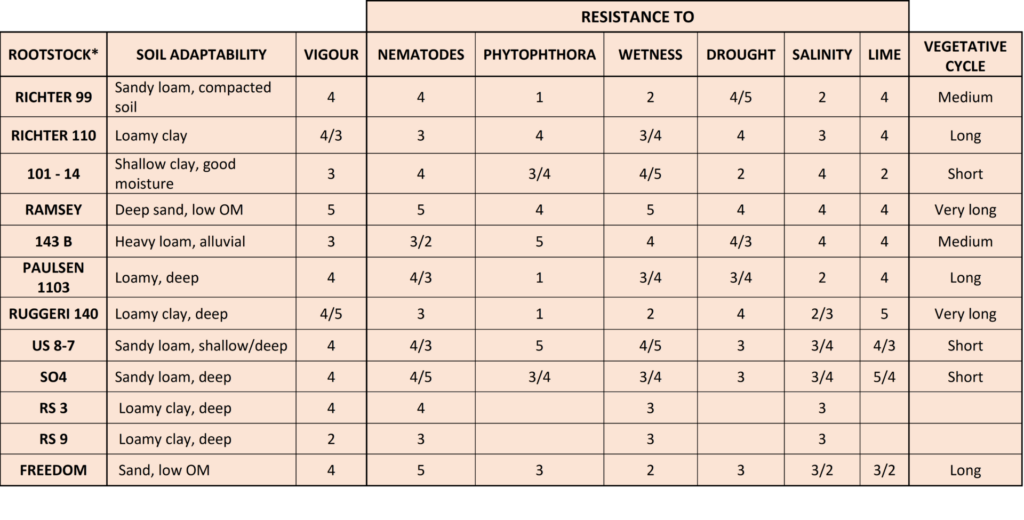
We Offer a Variety of Grape Vine Products to Suit Diverse Planting Needs:

Standard Dormant Vines (Winter)
Dormant, grafted vines are provided without soil in bundles of 50. This cost-effective option is convenient for large-scale plantings and ensures ease of transport and handling.

One-year-old Dormant Potted Vines (Winter in Pot)
These vines have completed a full year of growth and are supplied in a dormant state within pots, making them ideal for planting during the dormant season. This allows for early establishment in the vineyard. These one-year-old dormant potted vines are planted in outdoor nursery rows during the spring, where they grow throughout the summer and fall before being harvested in their dormant state during winter. Prior to delivery, the roots are carefully trimmed, packed in wood shavings, and stored in cold conditions to preserve their quality and vitality.

Cartonnage Vines (Potstokke)
These actively growing vines are grafted onto carefully selected rootstocks and provided in pots, making them ideal for growers seeking immediate planting during the growing season. Produced from dormant cuttings, these vines are cultivated in 4×3 plastic containers and are particularly suited for establishing new vineyard sites. Delivered as fully established, green-grown grapevines, they are best planted in spring.

Uber Vines (Langbeenstokke)
These are vigorous, tall vines that have undergone an extended growth period, resulting in a substantial root system and increased stem height. They are provided in 8-liter bags and are designed for rapid vineyard establishment and early production.
Ubervine Rootstocks
Richter 99
Richter 110
101 -14
Ramsey
143 B
Freedom
Paulsen 1103
Ruggeri 140
US 8-7
SO4
RS 3
RS 9
Importance of Origin
Because the role of origin is so important, an origin control system has for many years been in place in the traditional wine lands of Europe, to protect both the producer and consumer. The two factors which play the most important role in determining the character and quality of a wine is nature (soil, climate and location) and the human hand (cultivar choice, viticultural practices and winemaking techniques). Of these two, nature is considered to be the more important factor with a greater influence. In certain areas the vine grows better and within the South African wine producing areas, there are differences in soil, climate and location which cause wines to differ from region to region. If a wine claims origin, it is the statutory regulations which ensure that the wine really is from that origin.
